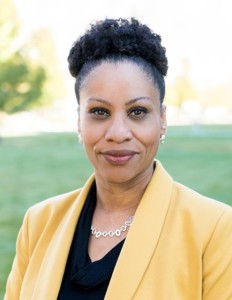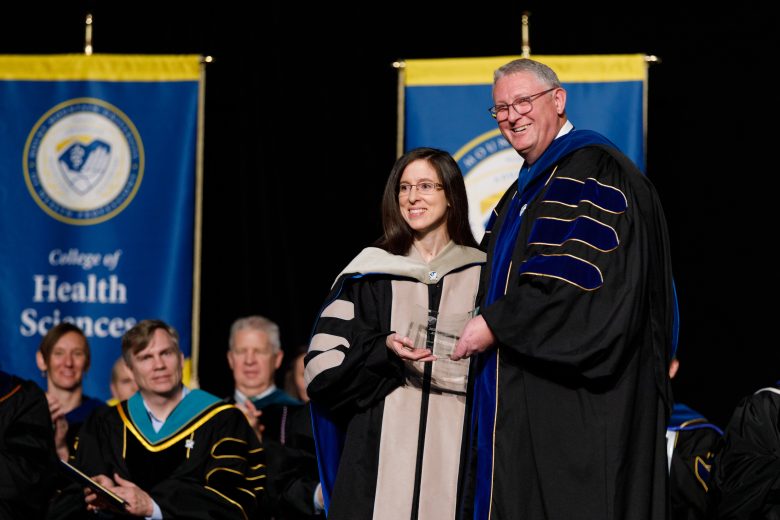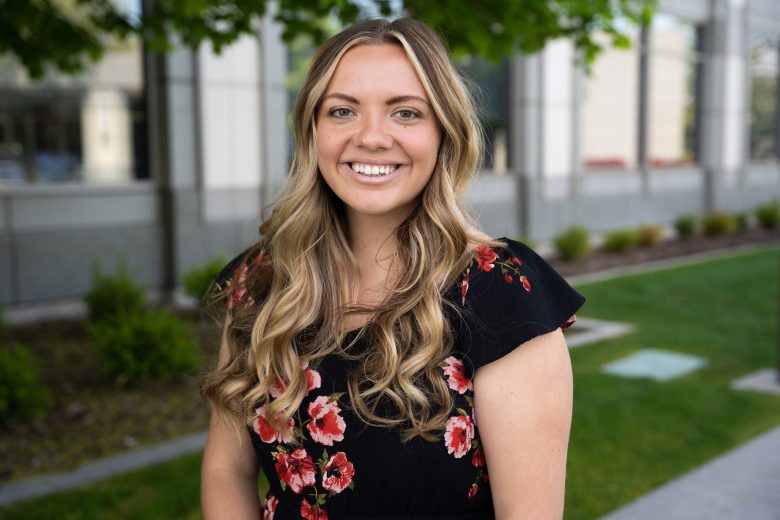 In commemoration of Black History Month, Rocky Mountain University of Health Professions (RMUoHP) celebrates with pride our University’s core values that encourage us to be Authentic and Inclusive. These values serve to help us better understand and honor our differences and similarities.
In commemoration of Black History Month, Rocky Mountain University of Health Professions (RMUoHP) celebrates with pride our University’s core values that encourage us to be Authentic and Inclusive. These values serve to help us better understand and honor our differences and similarities.
With origins extending back to 1915, Black History Month was developed from what was initially deemed Negro History Week. The historian Carter G. Woodson and minister Jesse E. Moorland founded the Association for the Study of Negro Life and History to highlight the achievements of people of color. In 1926, the group chose to promote Negro History Week. The second week of February was chosen by the Association to correspond with the birthdays of Abraham Lincoln and Frederick Douglas. During the 1960s, Negro History Week began to be more widely observed through month long celebrations, culminating in 1976 with President Gerald Ford officially acknowledging Black History Month by proclamation for the country to “seize the opportunity to honor the too-often neglected accomplishments of Black Americans in every area of endeavor throughout our history” (History, 2021).
For me, as an African-American woman, Black History Month is a source of pride. There are inventors, entrepreneurs, executives, healthcare professionals, and so many others who were not provided with a serious acknowledgment of their contributions to our society. Today, we have an opportunity to celebrate those who paved the way for us. Additionally, we can take a moment to celebrate the victories of our current era and to aspire for tremendous gains in the future. As I reflect on Black History Month, I make a personal commitment to continue to engage in dialogue, seek relationships with those who are similar to me and different from me, and to serve our society by making positive healthcare contributions wherever I can.
Recently we asked some students the question: Why is it important to acknowledge Black History Month?
 To me, black history month is taking twenty-eight days out of three hundred and sixty-five to highlight and praise those who fought and sacrificed their lives. It is also about recognizing inventors and artists who did not receive the praise they deserved while alive, admiring the strength of regular people/ civil rights activists and allies that dedicated their lives to making sure that I would one day receive the same rights as everyone else. It is essential to recognize Black history month because remembering and acknowledging black history is a way of appreciating those that came before us and educating those that will come after us on how black excellence has positively contributed to this country. – Andrea Adeboyejo, Master of Science in Speech-Language Pathology student
To me, black history month is taking twenty-eight days out of three hundred and sixty-five to highlight and praise those who fought and sacrificed their lives. It is also about recognizing inventors and artists who did not receive the praise they deserved while alive, admiring the strength of regular people/ civil rights activists and allies that dedicated their lives to making sure that I would one day receive the same rights as everyone else. It is essential to recognize Black history month because remembering and acknowledging black history is a way of appreciating those that came before us and educating those that will come after us on how black excellence has positively contributed to this country. – Andrea Adeboyejo, Master of Science in Speech-Language Pathology student
 Growing up as a Nigerian American in the South, I remember reading a small paragraph written about Juneteenth. Every time we used that text, I turned to that page, hoping my teacher would someday educate us about what that joyous holiday was all about; unfortunately, that never occurred. This is where my love for black history month grew; it was that time in my life, especially in school where we went in-depth about black people’s achievements despite years of adversity that still goes on today. This celebration of black excellence reminds me of a quote by George Washington Carver stating when I touch a flower, I am not merely touching that flower. I am touching infinity. That little flower existed long before there were human beings on this earth. It will continue to exist for thousands, yes, millions of years to come. Just like the flower, the black mind will continue to exist despite the acknowledgment and adversity exuded by the world around it. The significance of black history is educating each individual of all races about how black people have contributed to a better-quality life through inventions, healthcare, entrepreneurship in America. The celebration of black history is extremely necessary because not only does it highlight black excellence, which has been grossly understated in history books and our educational curriculum, but Black History Month pays tribute to the life and legacy of those unsung and unknown individuals, voices, and souls that built the foundation of America we know today. – Ekaette Udoh, Master of Science in Speech-Language Pathology student
Growing up as a Nigerian American in the South, I remember reading a small paragraph written about Juneteenth. Every time we used that text, I turned to that page, hoping my teacher would someday educate us about what that joyous holiday was all about; unfortunately, that never occurred. This is where my love for black history month grew; it was that time in my life, especially in school where we went in-depth about black people’s achievements despite years of adversity that still goes on today. This celebration of black excellence reminds me of a quote by George Washington Carver stating when I touch a flower, I am not merely touching that flower. I am touching infinity. That little flower existed long before there were human beings on this earth. It will continue to exist for thousands, yes, millions of years to come. Just like the flower, the black mind will continue to exist despite the acknowledgment and adversity exuded by the world around it. The significance of black history is educating each individual of all races about how black people have contributed to a better-quality life through inventions, healthcare, entrepreneurship in America. The celebration of black history is extremely necessary because not only does it highlight black excellence, which has been grossly understated in history books and our educational curriculum, but Black History Month pays tribute to the life and legacy of those unsung and unknown individuals, voices, and souls that built the foundation of America we know today. – Ekaette Udoh, Master of Science in Speech-Language Pathology student
 As a mixed Asian/Caucasian woman, I know that I will never fully be able to understand the perspective of those in the Black community. As a healthcare provider and ally, I feel that it is my obligation to do what I can to seek out opportunities to learn the history and culture of groups that are different than mine to better understand my patients and their families so I am able to provide the best care I can. Acknowledging and celebrating Black History Month is one simple way that I can lean into that role. – Morgan Louie, Master of Science in Speech-Language Pathology student
As a mixed Asian/Caucasian woman, I know that I will never fully be able to understand the perspective of those in the Black community. As a healthcare provider and ally, I feel that it is my obligation to do what I can to seek out opportunities to learn the history and culture of groups that are different than mine to better understand my patients and their families so I am able to provide the best care I can. Acknowledging and celebrating Black History Month is one simple way that I can lean into that role. – Morgan Louie, Master of Science in Speech-Language Pathology student
 Black History Month is an opportunity to honor and celebrate the innumerable contributions and accomplishments Black individuals have made to every facet of American life. This is significant because Black history is American history and because many of these very same contributions, accomplishments, narratives, and experiences have been excluded from formal and informal education systems. Black History Month is important because representation matters, as does the necessary restoration from systemic erasure. – Jessica Tessendorf, Master of Science in Physician Assistant Studies student
Black History Month is an opportunity to honor and celebrate the innumerable contributions and accomplishments Black individuals have made to every facet of American life. This is significant because Black history is American history and because many of these very same contributions, accomplishments, narratives, and experiences have been excluded from formal and informal education systems. Black History Month is important because representation matters, as does the necessary restoration from systemic erasure. – Jessica Tessendorf, Master of Science in Physician Assistant Studies student
 It is important to acknowledge Black History Month because it celebrates the lives of African Americans who have made sacrifices, faced incomprehensible challenges, and have made groundbreaking contributions to health, science, and the arts despite the challenges posed to them. Black History Month is an opportunity to revisit our past and make the necessary daily actions to ensure that we create and harness a world of equity and collaboration. – Andrea Gutierrez, Doctor of Physical Therapy student
It is important to acknowledge Black History Month because it celebrates the lives of African Americans who have made sacrifices, faced incomprehensible challenges, and have made groundbreaking contributions to health, science, and the arts despite the challenges posed to them. Black History Month is an opportunity to revisit our past and make the necessary daily actions to ensure that we create and harness a world of equity and collaboration. – Andrea Gutierrez, Doctor of Physical Therapy student
 As a future medical provider, Black History Month is an opportunity to evaluate the racial disparities in healthcare that Black people face on a daily basis. I believe educating myself on these topics will better prepare me to combat my implicit biases, advocate for Black patients, and provide individualized care that everyone deserves. – Shelby Perkins, Master of Science in Physician Assistant Studies student
As a future medical provider, Black History Month is an opportunity to evaluate the racial disparities in healthcare that Black people face on a daily basis. I believe educating myself on these topics will better prepare me to combat my implicit biases, advocate for Black patients, and provide individualized care that everyone deserves. – Shelby Perkins, Master of Science in Physician Assistant Studies student
 It is an increasingly well-known fact that Black patients receive poorer quality of healthcare than white patients. As a current healthcare worker and future medical speech and language pathologist, Black History Month gives me the opportunity to continue to amplify the black voice in accelerating the improvement of healthcare for ethnic and cultural minorities. – Russell De Jesus, Master of Science in Speech-Language Pathology student
It is an increasingly well-known fact that Black patients receive poorer quality of healthcare than white patients. As a current healthcare worker and future medical speech and language pathologist, Black History Month gives me the opportunity to continue to amplify the black voice in accelerating the improvement of healthcare for ethnic and cultural minorities. – Russell De Jesus, Master of Science in Speech-Language Pathology student
 Black History Month is important because so much of the progress of this country could not have been accomplished without Black people, whether voluntarily or against their will, and the Black community has not been recognized enough for it. I believe we are at a point in history where people of all backgrounds are coming together to fight for the rights of and justice for people of color, but this cannot be accomplished without acknowledging and learning from our past. – Molly Romaniak, Doctor of Physical Therapy student
Black History Month is important because so much of the progress of this country could not have been accomplished without Black people, whether voluntarily or against their will, and the Black community has not been recognized enough for it. I believe we are at a point in history where people of all backgrounds are coming together to fight for the rights of and justice for people of color, but this cannot be accomplished without acknowledging and learning from our past. – Molly Romaniak, Doctor of Physical Therapy student
 As a non-Black person of color, I strongly believe it is important to celebrate Black History Month to do away with stereotype stigmas on people of color and recognize that people of color are worthy of recognition and achievements. Along with celebrating their achievements, let us also celebrate the sacrifices they have made. We become better allies when we celebrate the history of our Black American friends. – Darcy P. Valadez, Master of Science in Speech-Language Pathology student
As a non-Black person of color, I strongly believe it is important to celebrate Black History Month to do away with stereotype stigmas on people of color and recognize that people of color are worthy of recognition and achievements. Along with celebrating their achievements, let us also celebrate the sacrifices they have made. We become better allies when we celebrate the history of our Black American friends. – Darcy P. Valadez, Master of Science in Speech-Language Pathology student
 It is a time to celebrate and uplift fellow members of our Black community because together we are stronger – Andrew Park, Master of Science in Physician Assistant Studies student
It is a time to celebrate and uplift fellow members of our Black community because together we are stronger – Andrew Park, Master of Science in Physician Assistant Studies student
As current and future healthcare professionals, we encourage everyone to think about ways in which to honor the values of being Authentic and Inclusive in your communities as we celebrate this special month.
Michelle Webb, EdD, OTD, OTR/L, CAPS, is the Vice President of Institutional Effectiveness and Co-Chair of the University Diversity, Equity, and Inclusion Committee at Rocky Mountain University of Health Professions. An occupational therapist by profession, Dr. Webb has spent her life dedicated to helping others.
Reference:
History (2021, January 28). Black History Month. https://www.history.com/topics/black-history/black-history-month



